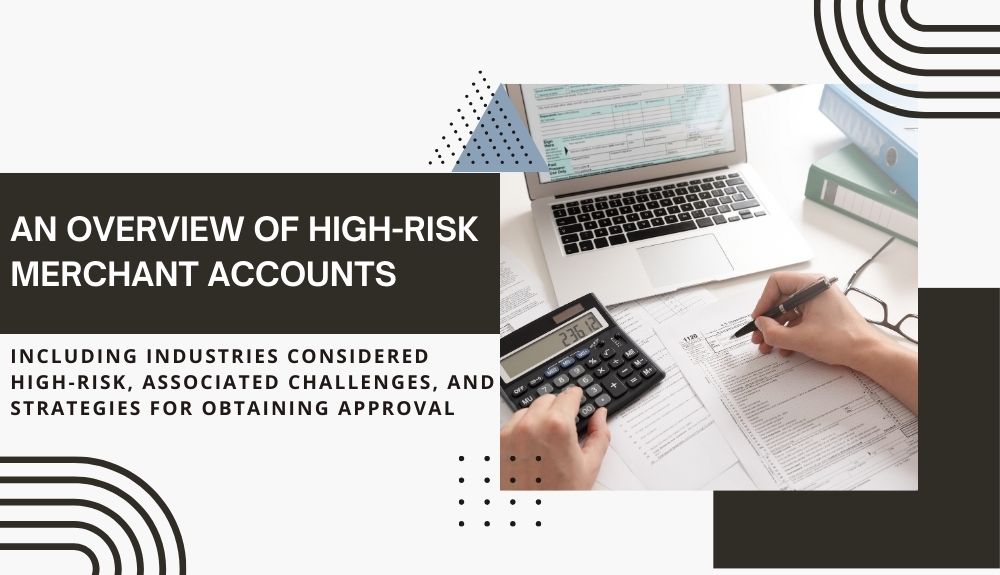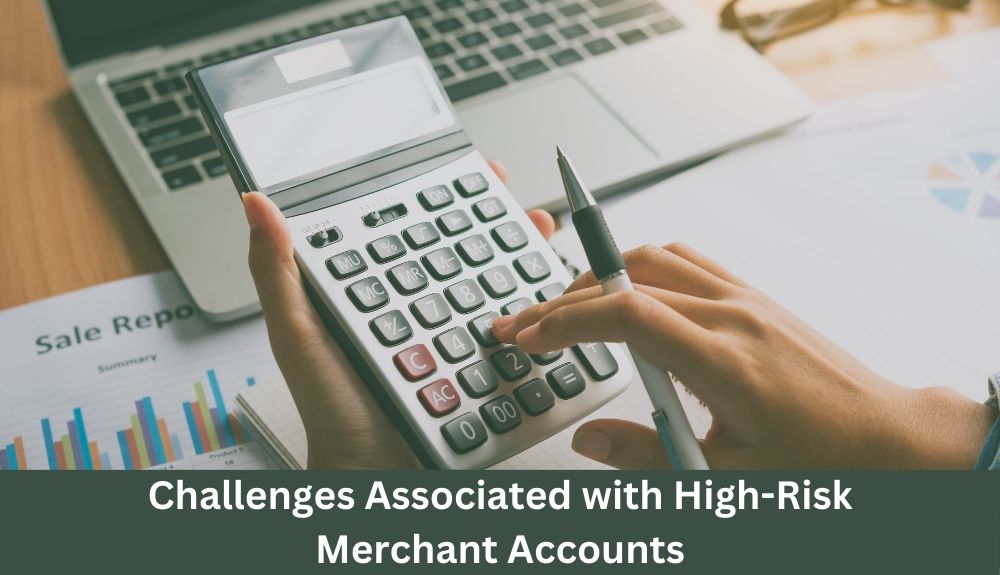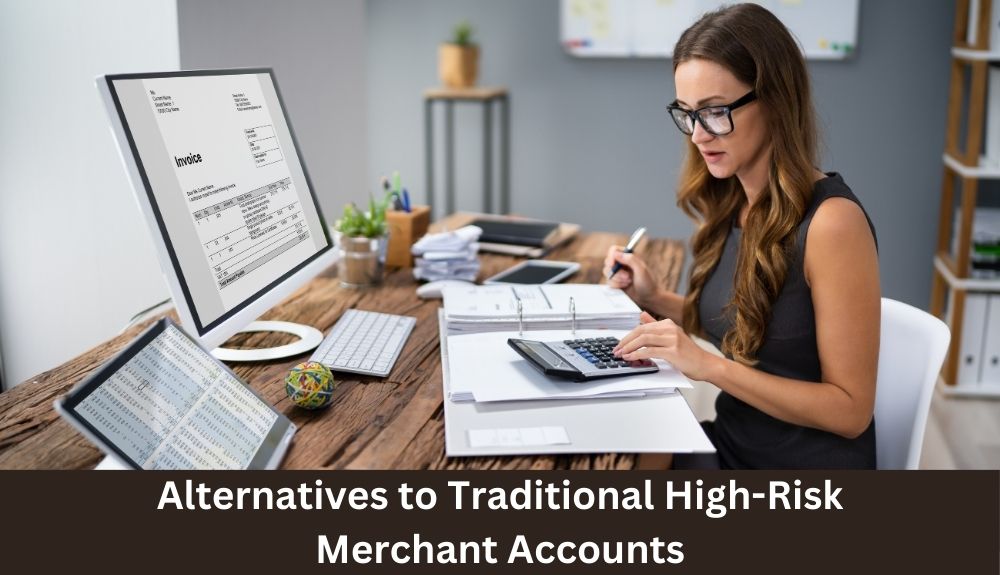
By max March 6, 2024
Introduction to High-Risk Merchant Accounts
Welcome to the world of high-risk merchant accounts, where businesses in certain industries face unique challenges when it comes to processing payments. If you’re operating in a high-risk sector, navigating the waters of payment processing can be tricky but fear not – we’re here to shed light on what it all means and how you can successfully obtain approval for a high-risk merchant account. Let’s dive in!
Understanding the Concept of High-Risk Industries
High-risk industries are sectors of the economy that are considered to have a higher likelihood of chargebacks or fraudulent activities. These industries pose greater risks for payment processors and financial institutions due to various reasons such as high transaction volumes, potential legal issues, or volatile market conditions.
Some common examples of high-risk industries include online gambling, adult entertainment, nutraceuticals, cryptocurrency exchanges, and travel services. Businesses operating in these sectors often face challenges when trying to secure traditional merchant accounts because they are perceived as riskier investments by financial institutions.
Despite the challenges associated with high-risk industries, many legitimate businesses operate within these sectors and require reliable payment processing solutions to support their operations. Understanding the unique characteristics and risks associated with each industry is crucial for both merchants and service providers when navigating the complexities of high-risk merchant accounts.
To mitigate the risks involved in processing payments for high-risk industries, specialized payment processors offer tailored solutions that cater to the specific needs of businesses operating in these sectors. By partnering with a reputable provider experienced in handling high-risk transactions, merchants can access reliable payment processing services while managing potential risks effectively.
Challenges Associated with High-Risk Merchant Accounts

Navigating the world of high-risk merchant accounts comes with its own set of challenges that businesses must be prepared to face. One major challenge is the higher processing fees associated with these accounts, which can cut into profit margins. Additionally, high-risk merchants may encounter difficulty obtaining approval from traditional financial institutions due to the perceived level of risk involved.
Another challenge is the potential for stricter underwriting requirements, such as providing more documentation and proof of financial stability. This can be time-consuming and stressful for business owners who are eager to start accepting payments online. Moreover, high chargeback rates are a common issue for high-risk merchants, leading to potential account closures or increased scrutiny from payment processors.
Furthermore, limited access to certain payment methods and services is a hurdle that high-risk businesses often face. This can impact customer convenience and satisfaction, ultimately affecting sales and revenue streams. Despite these challenges, with careful planning and research, businesses in high-risk industries can find solutions to successfully navigate the complexities of obtaining and maintaining a high-risk merchant accounts.
Strategies for Obtaining Approval for a High-Risk Merchant Accounts
When it comes to obtaining approval for a high-risk merchant account, there are several strategies that businesses can implement to increase their chances of getting approved. One key strategy is to provide clear and accurate documentation about your business model, products or services offered, and processing history. Being transparent about your operations can help build trust with the provider.
Another important strategy is to maintain good credit standing and financial stability. High-risk merchant account providers often look at the financial health of a business as part of the approval process. Demonstrating consistent revenue streams and responsible financial management can be beneficial in this regard.
Furthermore, choosing a payment processor that specializes in high-risk industries can also improve your chances of approval. These providers have experience working with businesses like yours and understand the unique challenges you may face in obtaining a merchant account.
By carefully preparing your application, being transparent about your business practices, maintaining financial stability, and partnering with specialized providers, you can enhance your prospects of securing a high-risk merchant account.
Alternatives to Traditional High-Risk Merchant Accounts

When it comes to high-risk industries, obtaining a traditional merchant account can be challenging. However, there are alternative solutions available for businesses in these sectors. One option is using third-party payment processors who specialize in working with high-risk merchants. These providers have the expertise and infrastructure to cater to your specific needs.
Another alternative is utilizing offshore merchant accounts. By setting up an offshore account, you may have access to more lenient regulations and lower processing fees compared to domestic options. Keep in mind that offshore accounts come with their own set of considerations such as currency conversion rates and potential legal implications.
Additionally, payment aggregators like PayPal or Stripe offer services tailored to high-risk businesses. While they may have stricter terms and higher fees, they provide a quick and convenient way to start accepting payments online.
Exploring these alternatives can help your business navigate the complexities of operating in a high-risk industry while still being able to process payments efficiently.
Conclusion: The Importance of Research and Due Diligence in Obtaining a High-Risk Merchant Account
In the world of high-risk merchant accounts, conducting thorough research and due diligence is paramount. Understanding the specific needs and requirements of your business, as well as the associated risks, can greatly increase your chances of obtaining approval for a high-risk merchant accounts.
By taking the time to explore alternative solutions, build a solid business plan, and demonstrate financial stability and compliance measures, you can position yourself as a reliable partner for payment processors. Remember that each industry has its own set of challenges and criteria for approval, so tailor your approach accordingly.
By staying informed about industry trends, regulatory changes, and best practices in risk management, you can navigate the complexities of high-risk merchant accounts with confidence. With dedication and strategic planning, you can secure the payment processing solution that meets your business needs while mitigating potential risks.
